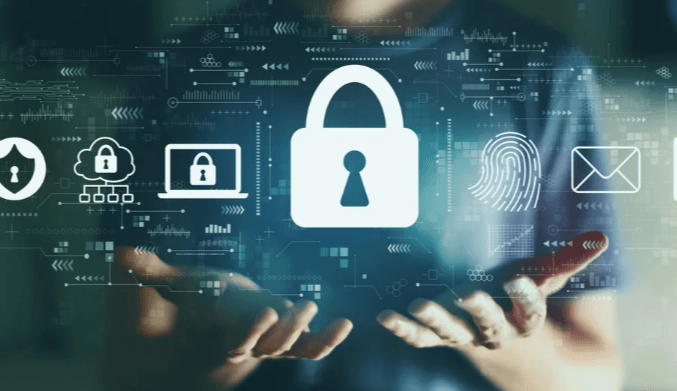What impact will quantum computing have on data security and encryption?

Introduction
Quantum computing is poised to transform the technological landscape, offering unprecedented computational power. While this promises advancements in various fields, it also poses significant challenges to data security and encryption. This article delves into the potential impacts of quantum computing on data security and encryption, examining both the threats and opportunities it presents.
Understanding Quantum Computing
Quantum computing leverages the principles of quantum mechanics to process information. Unlike classical computers that use bits as the smallest unit of data, quantum computers use quantum bits or qubits. Qubits can exist in multiple states simultaneously, thanks to the properties of superposition and entanglement, enabling quantum computers to perform complex calculations at astonishing speeds.
The Basics of Data Security and Encryption
Data security involves protecting digital information from unauthorized access, corruption, or theft throughout its lifecycle. Encryption is a key technique in data security, transforming readable data into an unreadable format using algorithms and keys. Current encryption methods rely heavily on the difficulty of certain mathematical problems, such as factoring large prime numbers, to secure data.
How Quantum Computing Threatens Current Encryption Methods
Quantum computing’s immense computational power poses a significant threat to traditional encryption methods. Quantum algorithms, like Shor’s algorithm, can efficiently solve the mathematical problems that underlie most encryption schemes. This capability could potentially render widely used encryption techniques, such as RSA and ECC, obsolete, exposing sensitive data to decryption.
Quantum Algorithms and Their Potential Impact
Quantum algorithms are designed to exploit the unique properties of quantum computers. Shor’s algorithm, for instance, can factorize large integers exponentially faster than classical algorithms. Grover’s algorithm offers a quadratic speedup for unstructured search problems. These algorithms could drastically reduce the time required to break cryptographic codes, jeopardizing data security.
Post-Quantum Cryptography: The Future of Encryption
Post-quantum cryptography aims to develop encryption methods that are secure against quantum attacks. These algorithms are based on mathematical problems that are believed to be resistant to quantum computing capabilities. Lattice-based cryptography, hash-based cryptography, and multivariate polynomial cryptography are some promising candidates for post-quantum encryption standards.
The Role of Quantum Key Distribution
Quantum Key Distribution (QKD) leverages the principles of quantum mechanics to securely distribute encryption keys. QKD uses quantum states of particles, such as photons, to create a key that is theoretically secure from eavesdropping. Any attempt to intercept the key alters its state, alerting the parties involved to the presence of an intruder.
Challenges in Implementing Post-Quantum Cryptography
Transitioning to post-quantum cryptography involves several challenges. Firstly, identifying and standardizing algorithms that are both secure and practical for widespread use is a complex task. Secondly, the computational overhead of post-quantum algorithms may be higher, impacting performance. Additionally, the migration process for existing systems will require significant effort and resources.
The Impact on Internet Security Protocols
Internet security protocols, such as SSL/TLS, rely on encryption to secure data transmission. The advent of quantum computing necessitates the development of quantum-resistant protocols. This transition will require collaboration among cybersecurity experts, organizations, and regulatory bodies to ensure seamless and secure adoption.

Quantum Computing and Blockchain Security
Blockchain technology relies on cryptographic techniques to ensure the integrity and security of transactions. Quantum computing could undermine these techniques, posing a threat to blockchain security. Researchers are exploring quantum-resistant cryptographic solutions to safeguard blockchain systems against potential quantum attacks.
The Importance of Early Adoption of Quantum-Resistant Technologies
Proactive adoption of quantum-resistant technologies is crucial to mitigate the risks posed by quantum computing. Organizations must begin assessing their cryptographic infrastructures and planning for the integration of post-quantum algorithms. Early adoption will help ensure a smooth transition and maintain data security in the quantum era.
Potential Benefits of Quantum Computing for Data Security
Despite the threats, quantum computing also offers potential benefits for data security. Quantum algorithms could enhance the efficiency of certain cryptographic operations, such as key generation and distribution. Additionally, quantum computing could improve threat detection and response times by processing large datasets more rapidly.
Collaboration and Standardization Efforts
Collaboration among academia, industry, and government is essential to address the challenges posed by quantum computing. Standardization bodies, such as the National Institute of Standards and Technology (NIST), are working to identify and evaluate post-quantum cryptographic algorithms. These efforts aim to establish universally accepted standards for secure cryptographic practices in the quantum era.
Quantum Computing and National Security
Quantum computing’s impact on national security is a significant concern. Governments must invest in research and development to protect sensitive information from quantum threats. This includes developing quantum-resistant encryption methods and ensuring that national infrastructure is secure against potential quantum attacks.
Ethical Considerations in Quantum Computing
The ethical implications of quantum computing in data security must be carefully considered. The power of quantum computing could be misused for malicious purposes, such as breaking encryption for espionage or cyber warfare. Establishing ethical guidelines and international regulations will be crucial to prevent abuse and ensure responsible use of quantum technology.
Preparing for the Quantum Future
Preparing for the quantum future involves a multifaceted approach. Organizations must stay informed about advancements in quantum computing and post-quantum cryptography. Investing in research, training cybersecurity professionals, and developing robust migration strategies are key steps to ensure readiness for the quantum era.
FAQs
What is quantum computing?
Quantum computing is a type of computing that uses quantum bits (qubits) and the principles of quantum mechanics to perform calculations at speeds much faster than traditional computers.
How does quantum computing threaten encryption?
Quantum computing can efficiently solve mathematical problems that underpin current encryption methods, potentially rendering them obsolete and exposing data to decryption.
What is post-quantum cryptography?
Post-quantum cryptography involves developing encryption methods that are secure against quantum attacks, using mathematical problems resistant to quantum computing capabilities.
What is Quantum Key Distribution (QKD)?
QKD is a method of securely distributing encryption keys using the principles of quantum mechanics, ensuring that any eavesdropping attempts are detectable.
How can organizations prepare for quantum computing?
Organizations should assess their cryptographic infrastructure, invest in post-quantum cryptographic research, and develop strategies for integrating quantum-resistant technologies.
What are the benefits of quantum computing for data security?
Quantum computing can enhance cryptographic operations’ efficiency, improve threat detection, and provide rapid processing of large datasets for better cybersecurity.
Conclusion
Quantum computing heralds both significant advancements and challenges for data security and encryption. While it threatens current cryptographic methods, it also drives the development of more robust, quantum-resistant solutions. By proactively embracing these advancements and collaborating on standardization efforts, we can secure our digital future in the quantum era.




